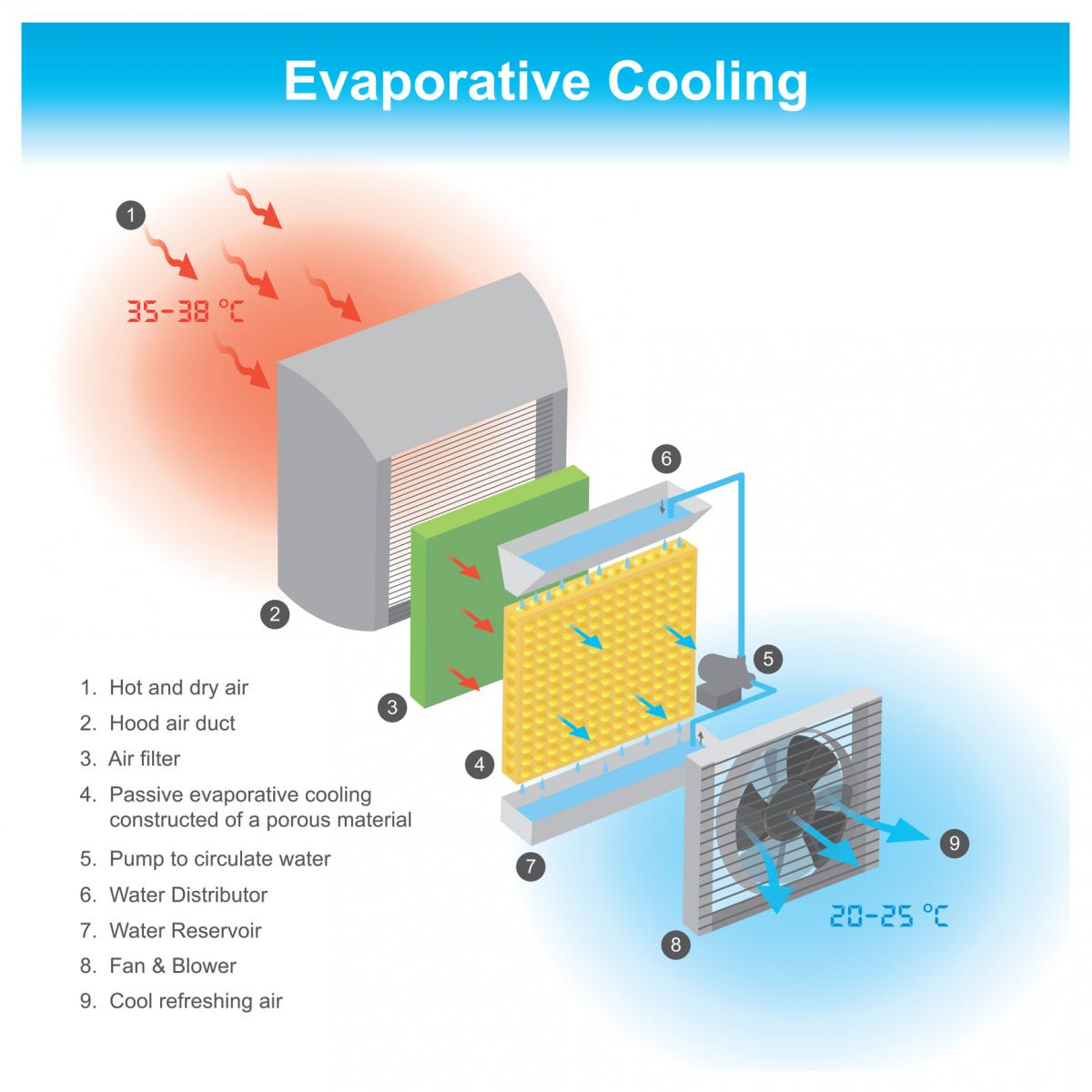Next Generation Cooling Technologies
Next Generation Cooling Technologies
Currently, a large majority of the residential air-conditioners are based on the thermodynamic vapor-compression cycle. The vapor compression technology has been around for decades and the best commercially available air-conditioners are approaching thermodynamic limits, where efficiency cannot be further improved without significantly increasing the cost. Therefore, to address the challenges associated with a growing global energy demand and rising global temperatures, there is  an urgent need to investigate alternative cooling technologies. Some of the alternative technologies that have been suggested recently are based on:
an urgent need to investigate alternative cooling technologies. Some of the alternative technologies that have been suggested recently are based on:
- Hybrid Vapor Compression and evaporatively cooled systems
- Direct and indirect evaporative cooling
- Separate sensible and latent cooling (dehumidification)
- Desiccant dehumidification
- Membrane dehumidification
- Ventilation with smart control
- Multi-stage compression
- Expansion recovery devices
However, before these next-generation components and systems can be deployed, some of the accompanying design and manufacturing challenges associated with making them affordable must be addressed. In addition, there needs to be a systematic plan for incorporating the changes required to production lines and the manufacturing processes.
Thus, in addition to the optimization of existing vapor compression technology, Berkeley Lab’s Global Cooling Efficiency Program is involved in cutting edge research to determine the viability of using alternative technologies for providing the cooling solutions for the modern world. With this effort, we hope to make a long-lasting impact on the energy efficiency of thermal comfort appliances, while still ensuring that they are accessible to the users in the emerging economies.
Our research ranges from improving the fundamental understanding of the evaporation and condensation processes to separate sensible and latent cooling/dehumidification, and hybrid solutions of existing technologies such as vapor compression refrigeration, direct and indirect evaporative cooling, and ventilation with smart control. Our research includes investigating condensation heat transfer of low global warming potential (GWP) refrigerants in heating, ventilation, air conditioning, and refrigeration (HVAC&R) and developing heat transfer models to help design and optimize heat exchangers for emerging mixtures of refrigerants.